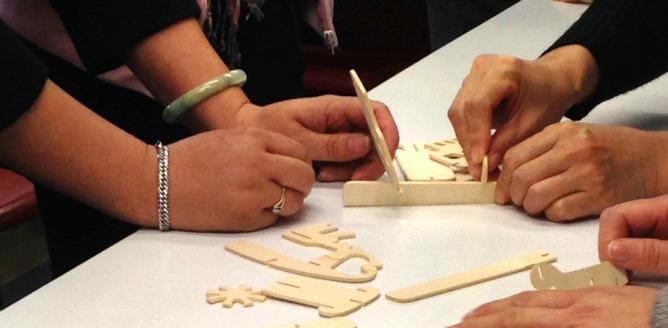Evaluation Report for TWF's Financial Literacy Programme for Marginalised Women
Executive Summary
TWF's Financial Literacy Programme for Marginalised Women was launched in 2011 to provide different communities of marginalised women in Hong Kong with financial literacy and negotiation skills and enhanced self-confidence and to assist local grassroots NGOs with capacity building through training ambassadors who in turn can teach the Programme to future generations of their peers. The Social Work Department of the Chinese University of Hong Kong was engaged as an independent evaluator to assess the effectiveness of the Program and to explore the utility and relevance of key aspects of the Programme to address the needs of marginalised women in Hong Kong.
The study adopted both quantitative and qualitative research methods to conduct subjective outcome evaluation, objective outcome evaluation, and qualitative evaluation. For the subjective outcome evaluation, a survey was used to collect participants’ opinions on the workshops and instructors, while for the objective outcome evaluation, a quasi-experimental design was used to assess the effectiveness of the financial literacy programme in terms of four complementary levels, namely cognitive level (knowledge and skills), personal level (self-concept and self-efficacy), family level (family relationships and attitudes) and social level (social capital). For the qualitative evaluation, focus groups were arranged to explore participants’ experiences, learning, and perceptions of the Programme.
The results of the subjective outcome evaluation showed that an overwhelming majority (91.8% to 99.2%) of the participants rated the Programme and the performance of the instructors positively. The objective outcome evaluation indicated that the participants experienced substantial improvements in their sense of self-efficacy and ability to provide financial education for their children. Furthermore, the qualitative findings demonstrate that the Programme successfully trained participants to make more rational choices in consumption and saving money. The change in their attitude of how they viewed themselves from ‘nothing’ to ‘something’ was another achievement of the Programme. Participants gained more than just knowledge but in many cases, an inside-out transformation.
The synthesis of the quantitative and qualitative research findings generated the following recommended changes to the Programme. First, it was suggested that the training would be more meaningful and inspiring if in future, the Programme could utilise more individual examples relating to daily life experiences - in other words, the further development and inclusion of experiential knowledge, together with professional knowledge. Secondly, it was recommended that TWF and our partner NGOs identify and selectively recruit ambassadors with higher capability and potential who will be more confident in conducting community training for their peers. This will help enhance the sustainability of the Programme. Thirdly, in order to use resources more effectively, it was recommended that the Programme could confine its focus to a selected handful of marginalised women groups so the impact of the Programme could be more extensive and thorough. Last but not least, it was suggested that the Programme curriculum should be more open and flexible thereby enhancing the course designers' ability to tailor-make the content for each distinctive disadvantaged group.


















